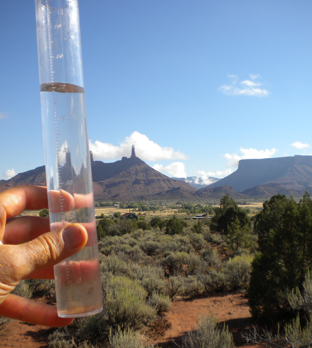New Report: Evaluating Knowledge to Support Climate Action
 Governments and communities around
the world are working to reduce their carbon footprints and
mitigate the effects of climate change, but in some communities,
climate action plans are stalling. A new report, “Evaluating
Knowledge to Support Climate Action,” prepared by the
Independent Advisory Committee for Applied Climate Assessment
(IAC) with contributions from our Executive Director, Ryan Meyer,
examines what it would take to develop a dynamic assessment
process that helps affected jurisdictions, communities, and
organizations establish pathways for climate action. Its
recommendations are an important input to ongoing climate
assessment and research in the federal government and elsewhere.
Governments and communities around
the world are working to reduce their carbon footprints and
mitigate the effects of climate change, but in some communities,
climate action plans are stalling. A new report, “Evaluating
Knowledge to Support Climate Action,” prepared by the
Independent Advisory Committee for Applied Climate Assessment
(IAC) with contributions from our Executive Director, Ryan Meyer,
examines what it would take to develop a dynamic assessment
process that helps affected jurisdictions, communities, and
organizations establish pathways for climate action. Its
recommendations are an important input to ongoing climate
assessment and research in the federal government and elsewhere.
A role for community and citizen science
Bringing communities to the table and making sure they have the resources they need to adapt to new climate conditions is important, and community and citizen science play a critical role. This report hits upon the urgent need and exciting potential for diverse communities to participate actively in the science that supports climate adaptation and resilience. Participation through community and citizen science can address longstanding issues of equity and access that have for so long made science feel distant and irrelevant to many, even as the impacts of climate change loom larger and larger. Additionally, citizen and community science has the potential to close gaps in data-poor areas, shedding light on previously undocumented socioeconomic, ecological and health-related issues.
However, community and citizen science is still an underused resource in the assessment process. One of several recommendations related to CCS is “a national effort to improve data on climate-change impacts and response measures through development of rigorous shared protocols and improved coordination of ongoing independent community- and citizen-science.”
Additional short-term goals which would support the larger effort:
- Assess current usage of citizen and community science in climate adaptation;
- Develop standards and protocols to ensure rigor and consistency in data collection, including harnessing emerging technologies such as artificial intelligence;
- Identify ways that citizen and community science could provide local contextualization that would supplement climate projections and models;
- Adapt the participatory methods of citizen and community science to support a participatory approach to climate research-to-adaptation practice; and
- Explore how citizen and community science can contribute data, information, and engagement processes that support community discussion of equity and social justice.
Building Capacity
The IAC report is just a first step. Next, a convening process will organize SCAN and identify initial priorities. SCAN, or Science for Climate Action Network, will create a dynamic assessment process to assist affected communities. Input is sought from state/local/tribal/community groups, professional societies and standards-setting organizations, research organizations in academia and the private sector, business interests, and federal groups as possible. Information on initial leadership and engagement opportunities are available here. You can also access the full report and learn more about the Independent Advisory Committee here.








